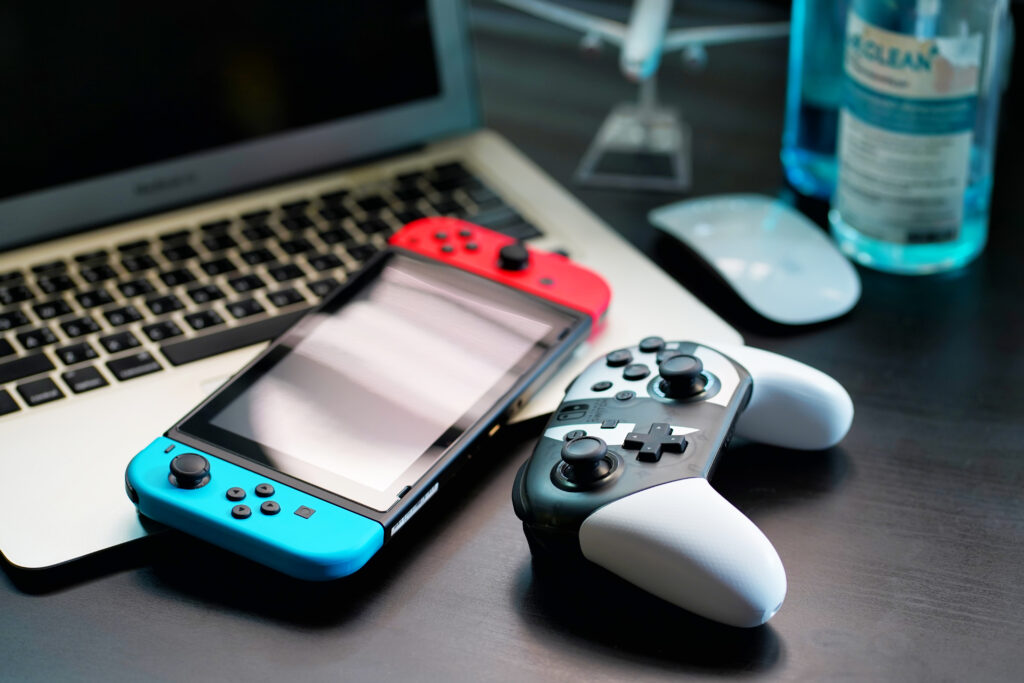We all know that gaming can be a great way to relieve stress and have some fun. If we game in healthy ways, it can be a boon for our mental health. However, if we’re not careful, it can also become an unhealthy habit. In this blog post, we’ll discuss some tips for creating healthy gaming patterns. We’ll cover things like setting boundaries, balancing gaming with other activities, and taking breaks. These tips will help you improve your mental health and see the flow of your day more clearly. So whether you’re a casual gamer or someone who spends hours every day playing games, read on for advice on how to stay on the best timeline with your gaming routine!
What Is Healthy Gaming?
Healthy gaming typically includes playing video games for fun and relaxation. Play is an essential part of a healthy lifestyle. Being able to experience challenges and goals with an attitude more consistent with fun, skill, and low stress makes play an important activity compared to the high stress work and school environments we normally associate achievement with. Without this balance, we can fall into negative emotional states as we realize how tough life actually can be. Video games can specifically empower us in the role of the hero, believe in us as the one who can solve the puzzle, and celebrate us as we save the world from catastrophe in the virtual worlds we visit in our leisure time.
Why Does Gaming Become Problematic?
Problematic gaming is when time spent playing begins to interfere with daily life activities such as school, work, or social relationships. We can get hooked on this idea that actual life matters less, or that we are stuck and cannot do anything about it. We can disengage from these frustrations and choose something else over and over. The problem is, that something else is a game, and the game is a distraction from the actual challenge in front of us. At this point, the games stop our growth in the actual world, promising us a false fulfillment inside the world of the game. We stop to grow because we are missing the chances to gain real-life EXP.
The Cognitive Benefits Of Gaming
The benefits of playing video games are well-documented. Video games can improve hand-eye coordination, problem-solving skills, and even cognitive function. In addition, gaming can be a great way to relieve stress and unwind after a long day.
Anyone who has ever been lost in a video game knows that they can be incredibly absorbing. Beyond that, it turns out that there may be some benefits to getting lost in a digital world. A growing body of research suggests that video games can improve cognitive skills such as problem solving, memory, and perception. Research has found that people who played action games showed better performance on tests of attention and reaction time. Another study found that people who played puzzle games had improved memory and abstract reasoning skills. Video games can also help people develop time management and planning skills. And while there is some concern about the potential for video game addiction, moderate amounts of gaming can actually be beneficial. So the next time you settle in for a marathon gaming session, it is okay to reflect on all the ways you may be doing your brain a favor.
Personal Bias: Video games are often harder to figure out than many real-life tasks such as school, work, or cleaning the house. This does NOT mean we shouldn’t do those things. It just means there is a reason we may love to solve challenging puzzles instead of boring ones.
Creating A Healthy Gaming Pattern
However, it’s important to remember that moderation is key when it comes to gaming. Just like with anything else, too much of a good thing can be bad for you. spending hours upon hours playing video games can lead to problems such as poor sleep habits, social isolation, and even addiction.
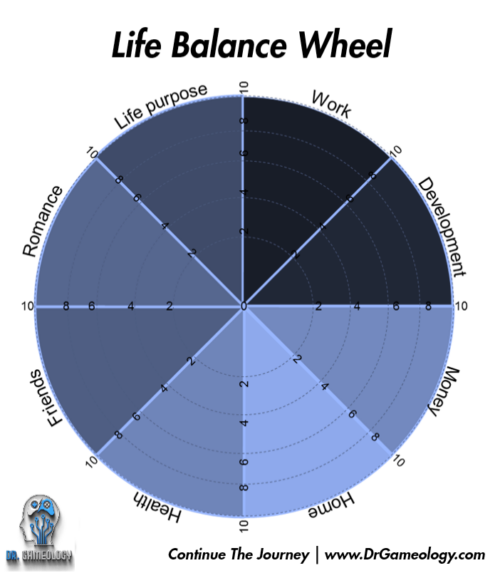
Preventing these consequences from entering your life is one of the key reasons to create a healthy gaming pattern on the front end. Here are a few tips to help you get started:
- Set boundaries: It’s important to set limits on how much time you spend playing video games. This will help you avoid spending too much time in front of the screen and ensure that you’re still getting enough physical activity and social interaction.
- Balance gaming with other activities: Make sure to balance your time spent gaming with other activities such as spending time with friends and family, being active, and pursuing other interests. This will help you avoid becoming too isolated or fixated on gaming.
- Take breaks: Take regular breaks while gaming to rest your eyes and give your mind a break. This will help you avoid becoming too engrossed in the game and missing important cues in the real world.
By following these tips, you can create a healthy gaming pattern that works for you. So don’t be afraid to game on, but remember to keep your life in balance while you do!
Tips For Maintaining A Healthy Balance Of Gaming And Other Activities
Another way to create healthy gaming habits is by making sure to balance gaming with other activities. It’s important to have hobbies and interests outside of gaming. This will help you avoid becoming too isolated and will give you something else to work on during your day.
One way to find other activities is to look for ones that complement your gaming. For example, if you enjoy playing first-person shooter games, you could look for a sport that requires quick reflexes and good hand-eye coordination. Or if you like role-playing games, you could find a club or group that meets regularly to discuss the game (or start a podcast!!).
No matter what your interests are, there are probably activities out there that can connect with you in a similar way as your favorite games do. Be creative and see what life has to offer!
Taking Breaks From Gaming
This is why it’s important to set boundaries when it comes to your gaming habits. One way to do this is by setting time limits for yourself. For example, you might decide that you’ll only play for two hours every day. Once you’ve reached your time limit, it’s important to stick to it and take a break. This will help you avoid becoming too engrossed in the game and missing important cues in the real world.
In addition to setting time limits, it’s also important to take regular breaks while gaming. This will help you avoid becoming too fixated on the game and will give you a chance to rest your eyes and clear your mind. It’s also a good opportunity to get up and move around, since too much sitting can be bad for your health. Get up, collect some steps, refill that cup of water (or coffee if you are like me), and you can always come back once you have given your body some of your day to live the same way your mind can stretch its limits while gaming.
So don’t be afraid to game on, but remember to keep your body active during the day as well!
Setting Boundaries With Gaming
Video games are a lot of fun, and if we are playing the right ones for our personal motivation style, we can lose track of time easily. The tradeoff of feeling so much flow in our day with fun things is we sometimes need a reminder of how to snap back to other kinds of tasks. If you find yourself spending too much time playing video games, it might be time to set some limits. By setting time limits for your gaming sessions, you can help to ensure that you’re still getting enough exercise and social interaction. Using our devices in a smart way can break this trend and keep things healthy. This can be done using alarms or timers on our smart phones (the other devices that dominate our lives). Even better, you can create cues in your environment that speak to you that get more creative than what we can talk about here. Regardless of how you get this done, time limits can help you to remember your other important tasks, such as homework or chores. Of course, it’s important to find a balance that works for you. Too much time spent gaming can be detrimental to your health, but a little bit of gaming can be a great way to relax and unwind. With a little bit of planning, you can make sure that your video game playing is healthy and manageable.
You know you better than anyone else. Make a plan while you are thinking clearly that will remind you to do the right thing even if you know you could be having fun.
The Importance Of Moderation When It Comes To Gaming
While there are many benefits to gaming, it’s important to remember that moderation is key. Too much time spent gaming can lead to problems such as poor grades, social isolation, and even obesity. It’s important to find a balance that works for you. Consider setting time limits for your gaming sessions, and make sure to take breaks often. Many hobbies take time to continue them, and the same can be said with video games as well. Figure out for yourself what the best flow for your day would look like. Having an hour chart that you fill out at the beginning of your day can really help. This way, you have a general idea when gaming makes sense, and when it does not. This also will help you figure out what other kinds of goals you have for your day. Entertainment and relaxation are important things to have in our lives, but giving them too much focus could lower our score for other life areas.
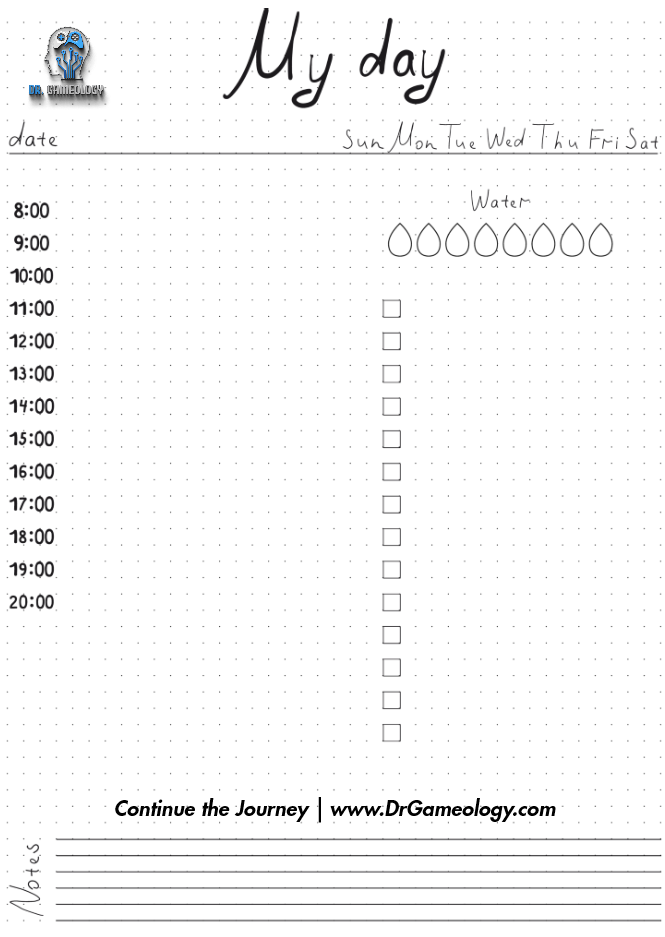
The Dangers Of Excessive Gaming
Video games are a lot of fun, but there can be such a thing as too much of a good thing. When gaming starts to take over your life, it can lead to problems such as poor grades, social isolation, and even obesity. On the Gaming Persona Podcast, we call this “The Dark Timeline.” If you find yourself spending too much time playing video games, it might be time to set some limits. By setting time limits for your gaming sessions, you can help to ensure that you’re still getting enough exercise and social interaction. Using our devices in a smart way can break this trend and keep things healthy.
- Video games can be addicting if they lead to problems in other life areas
- Lack of studying and completing school assignments will lead to poor grades. Playing games can cause people to forget to spend time on other things.
- If all we do is play video games, we may forget that they are designed to give us fun challenges we can enjoy, even when we fail. Gamer Rage happens when we take our losses too seriously and lose track of our ability to manage our emotions. This Emotional Dysregulation can make it harder for people to be around us. It is always important to treat people the right way, and video games should never get in the way of that.
- Note: If this happens to you from time to time, it is important to reflect on why you are playing the game, and how much it matters. Is it more important than the people around you that you are blasting your rage into? Probably not. Take a break, and return when you are calm and at peace. Games should be fun, and you don’t want to destroy your surroundings with a rage area of effect all the time.
- Relationships require time and interest in order to keep them active. Video games could lead to social isolation, which creates distance between you and people that matter to you. Taking time away from games each day can prevent many of these issues from occurring.
- Excessive eating, poor diet, and lack of physical activity can all lead to obesity. If we are sedentary a high percentage of our day, our body will not be able to regulate as well as a moving body would. Staying hydrated and remembering to collect our steps each day are small changes that can lead to big results. Video games can cause us to forget to do these things.
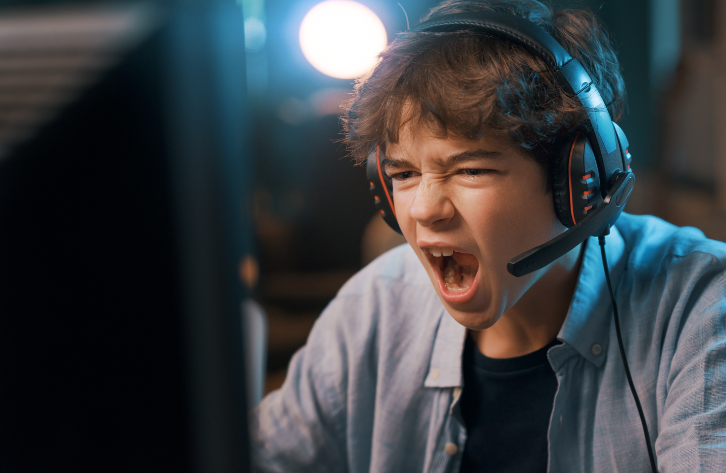
Quick Ways to Gamify Life!
For many of us, video games are a favorite pastime. They’re creative, stimulating and can be a great way to unwind after a long day. But what if we could use video games to improve our lives? That’s where “gamification” comes in. Gamification is the process of applying game-like mechanics to non-game activities in order to make them more fun and engaging. And it turns out that gamification can be an effective tool for everything from time management to fitness. Here are some quick and easy ways to gamify your life:
- Set yourself goals and milestones, and give yourself rewards for reaching them. For example, you could give yourself a gold star (or equivalent) every time you complete a task on your to-do list. Or you could set a goal of walking 10,000 steps a day, and give yourself a virtual badge every time you reach that number.
- Make a competition out of it. See who can do the most push-ups, take the most steps or save the most money. You could even gamify your workouts by tracking your progress and seeing how far you can run in a certain amount of time.
- Turn everyday tasks into fun challenges. See how many push-ups you can do while brushing your teeth, or how many sit-ups you can do while waiting for the bus. By gamifying your life, you can make even the most mundane tasks more fun and engaging. So why not give it a try?
Tools like Habitica can also be used on our smart phones and web browsers to put anything we want to do in life into an IRL (in real life) quest list. Each time we complete a goal, we gain exp. We even choose a class, gain new outfits, and level up. Many people (including Dr. Kaufmann, aka the REAL Dr. Gameology) have accomplished great things using tools like this to gamify life. Next time someone tells you playing a game will not help them finish the toughest challenges in school, they might be right if you are just playing easy and fun things. If you are gamifying the class though, you may want to tell them to start thinking outside the box with such outlandish claims!
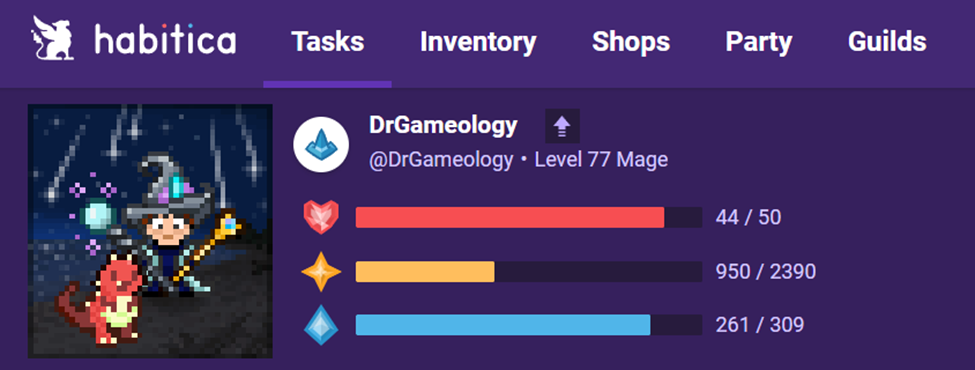
What Can We Do With These Ideas?
All of these tips are important to keep in consideration when thinking about video games and how they might affect us. Video games are a lot of fun, but like all things we should make sure they fit into our lives in the right way. Too much time spent on anything can be detrimental to our health and well-being. So set some limits, take some breaks, and most importantly, have fun!
Thank you for reviewing healthy gaming practices with us here at Dr.Gameology.com. Always remember to #GamifyLife, and most of all…
Continue the Journey


